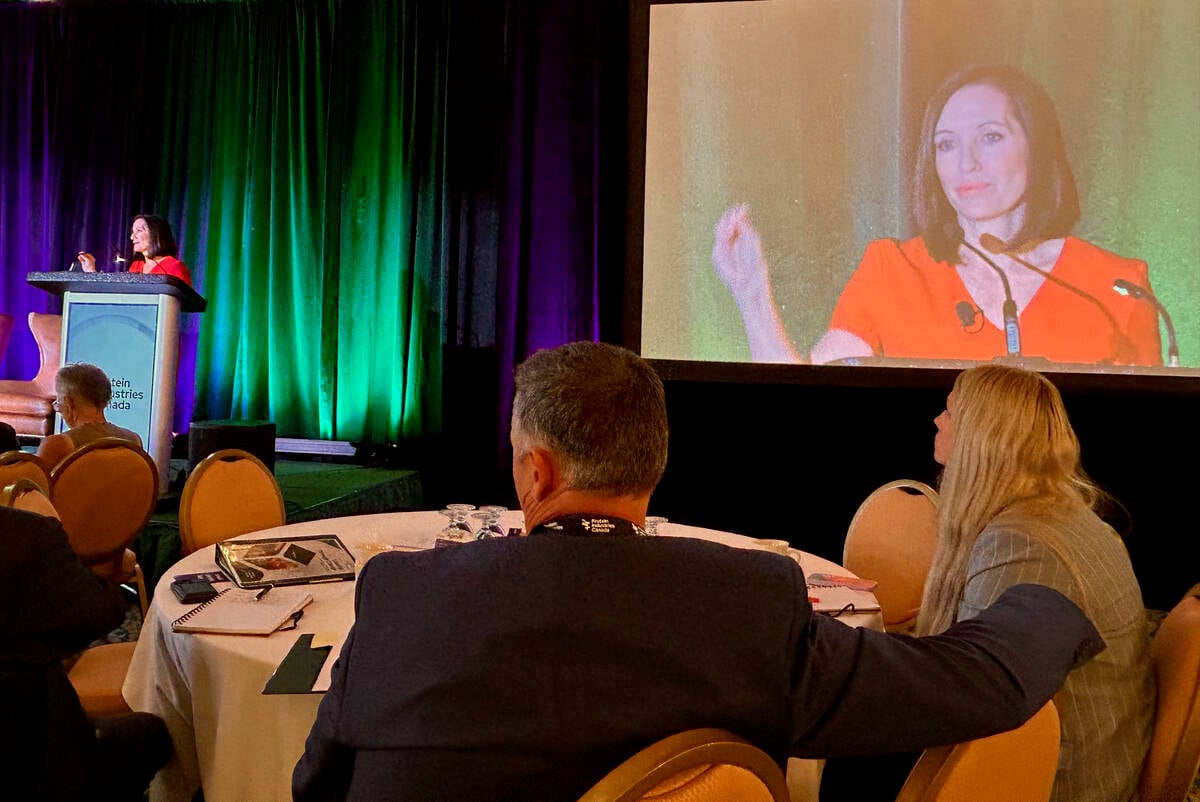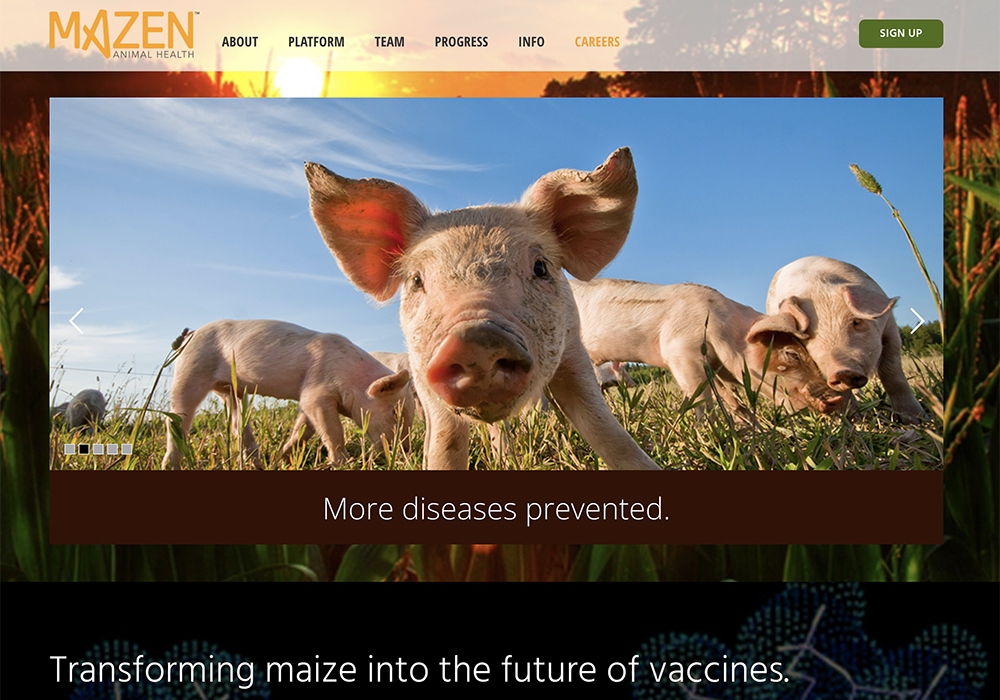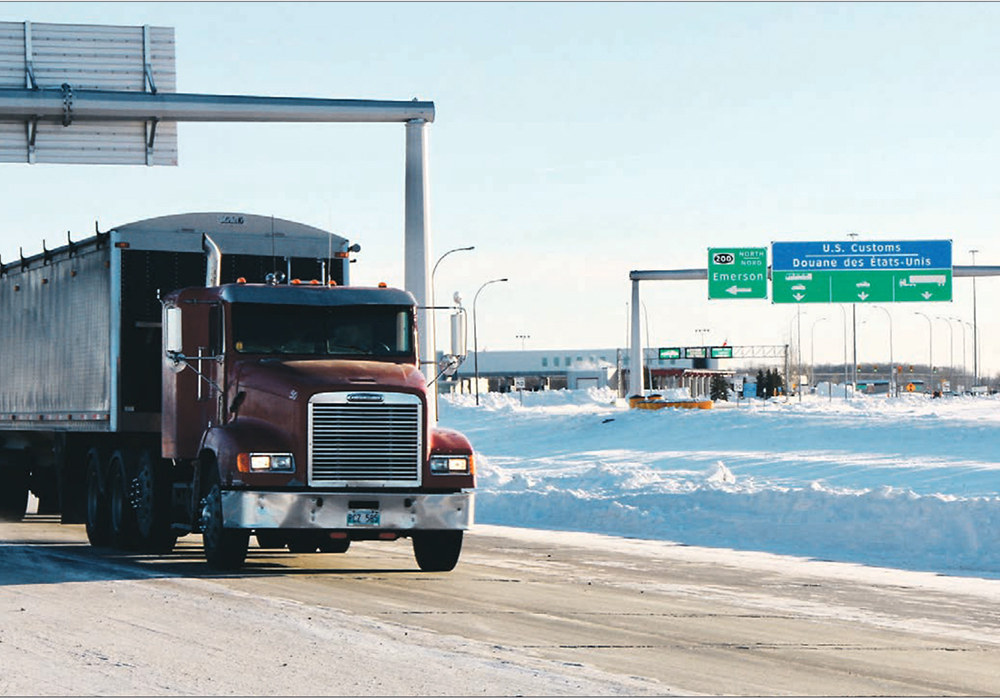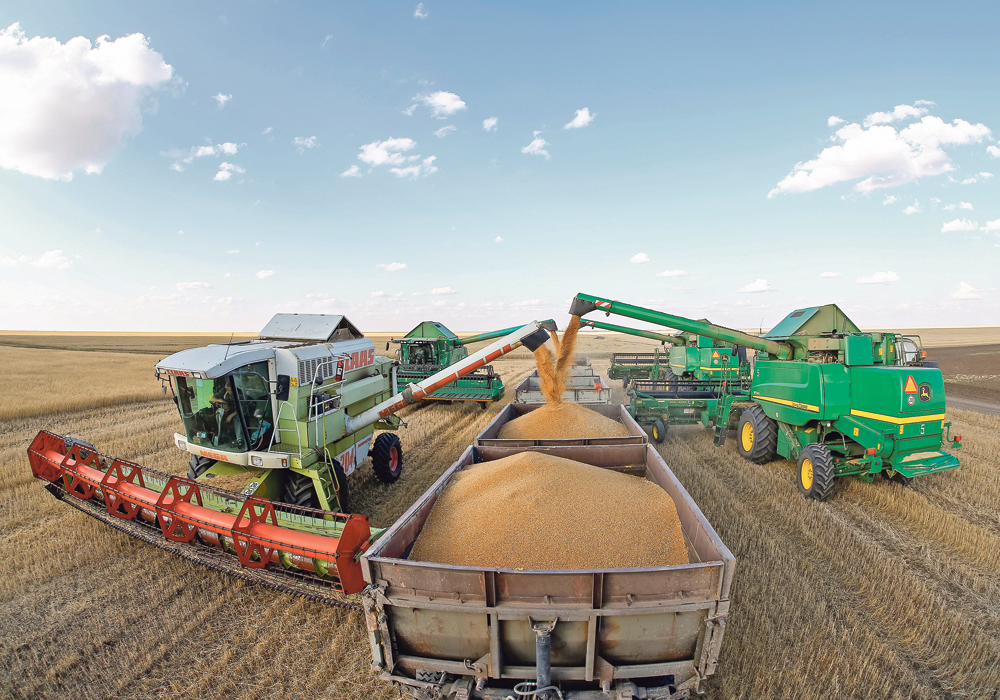Canadian approval was recently granted for a plant-based COVID-19 vaccine called Covifenz. This marks the first time anywhere in the world a COVID-19 vaccine grown in plants has been approved.
Developed by a Quebec company called Medicago, this is another example of a new world of opportunity called molecular farming.
Plants are modified to produce specific and highly valuable proteins and chemicals that would otherwise be created and produced in a laboratory. Vaccine produced in the plant is extracted and used in a jab like regular vaccines.
Read Also

Canada told trade crisis solutions in its hands
Canadians and Canadian exporters need to accept that the old rules of trade are over, and open access to the U.S. market may also be over, says the chief financial correspondent for CTV News.
I am part of a San Francisco company called Fall Line Capital, which invests in leading edge ag technologies, such as molecular farming. We are helping a new tech start-up bring a corn-based swine vaccine to the animal industry. However, in this case the vaccine will simply be in the corn itself rather than an injection.
This corn-based vaccine company is called Mazen. It recently completed its first feeding trials in vaccinating swine against the porcine epidemic diarrhea virus (PED). There is yet to be any conventional vaccine to combat this viral disease. The initial Mazen trial looked good.
In the study, survival rate of piglets in the control group was 9.8 percent. Survival rate in the group receiving the Mazen oral vaccine was 53 percent.
They demonstrated it’s possible to create immunity with their elegantly simple corn-based system that combats this PED. The sows are fed corn-vaccine at three different intervals during gestation. The sows pass their immunity to their newborn piglets, where the disease is most devastating.
Mazen’s form of molecular farming can open the door to a promising delivery platform. It can be used with a wide range of vaccines for other diseases and for a wide range of animals, including pets. There are no chemical inactivants or adjuvants, eliminating any potential risk of allergenic reaction.
Mazen modifies corn to produce a specific antigen protein inside the kernel itself. Each kernel becomes a little yellow vaccine pill. The corn plant and the kernels behave like regular corn and is treated just like regular corn. You can dump it in a grain bin.
With normal proper storage parameters, the corn can be augered out of the bin five or six years later and still be fully effective as a vaccine. There’s no need for refrigeration or any special storage environment.
The vaccine corn simply needs to be blended with the normal ration. The animal becomes vaccinated by eating the feed. It should easily fit into existing swine feeding operations.
This is simply a solar-powered vaccine system. It’s highly efficient in use of energy and water, and it is administered with little labour. There’s no stress or awareness to the animal and that means no needles to break off.
Mazen has overcome a substantial obstacle. It’s hard to create a vaccination response from simply eating something. The stomach and digestive system is a harsh environment. It’s designed to minimize the rest of the body’s response to eating and digesting a variety of food, thus protecting the animal. Most vaccines need to be injected into the blood stream so these natural bodily protections can be avoided.
However, if you can make this big jump from the stomach to the immune system, then you have effectively created a response. Once that happens the immunity itself can become very powerful. A mucosal immunity is more likely to protect an animal from airborne pathogens that infect through the nose, such as the omicron variant.
Mazen has other possibilities in its pipeline, but for now it is concentrating on the PED vaccine. They have a lot of work ahead with further feeding and production trials, plus navigating the registration process.
The company’s first steps with this initial vaccine have been encouraging.
Scott Day farms at Deloraine, Man. He served as an ag-rep and manager of the Manitoba Agriculture research farm. He is now partner in a farmland/ag tech investment company Fall Line Capital based in San Francisco. Contact him at scott@fall-line-cap.com.

















